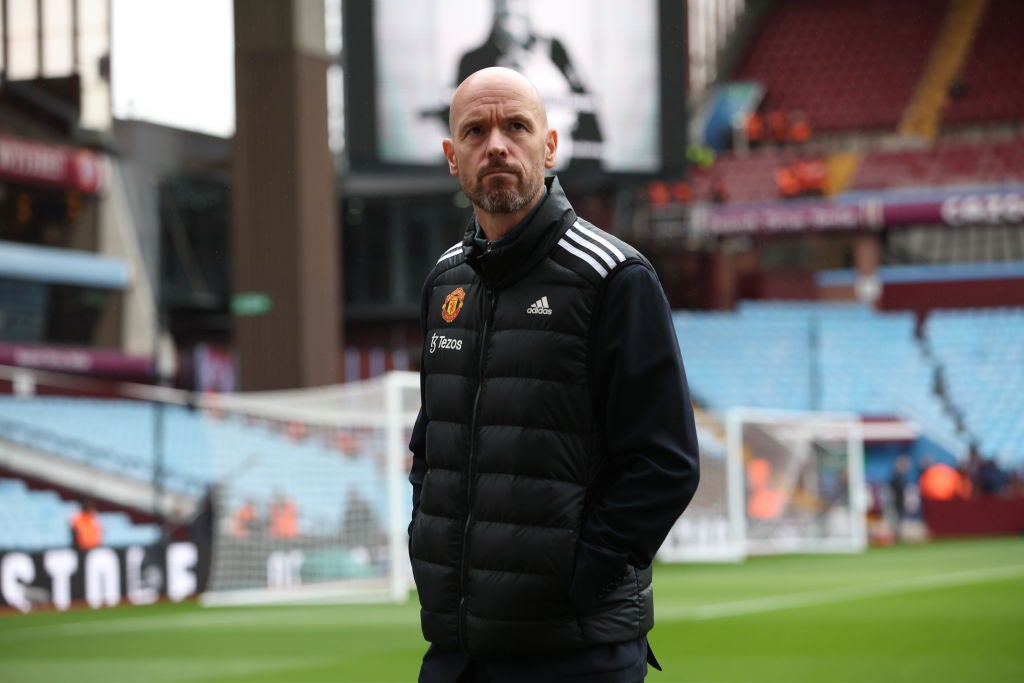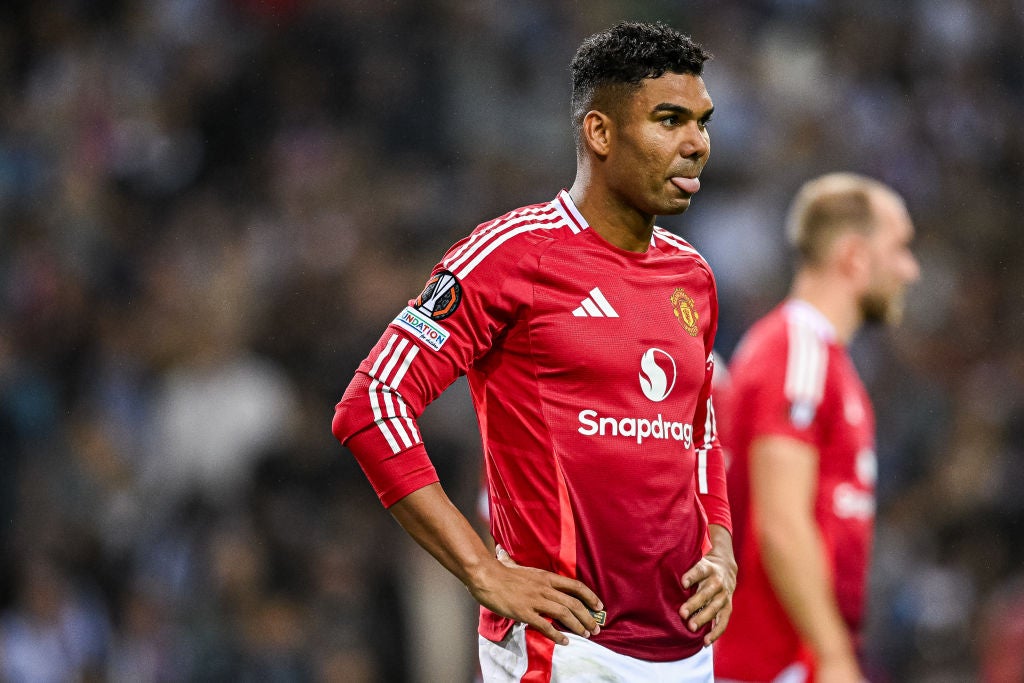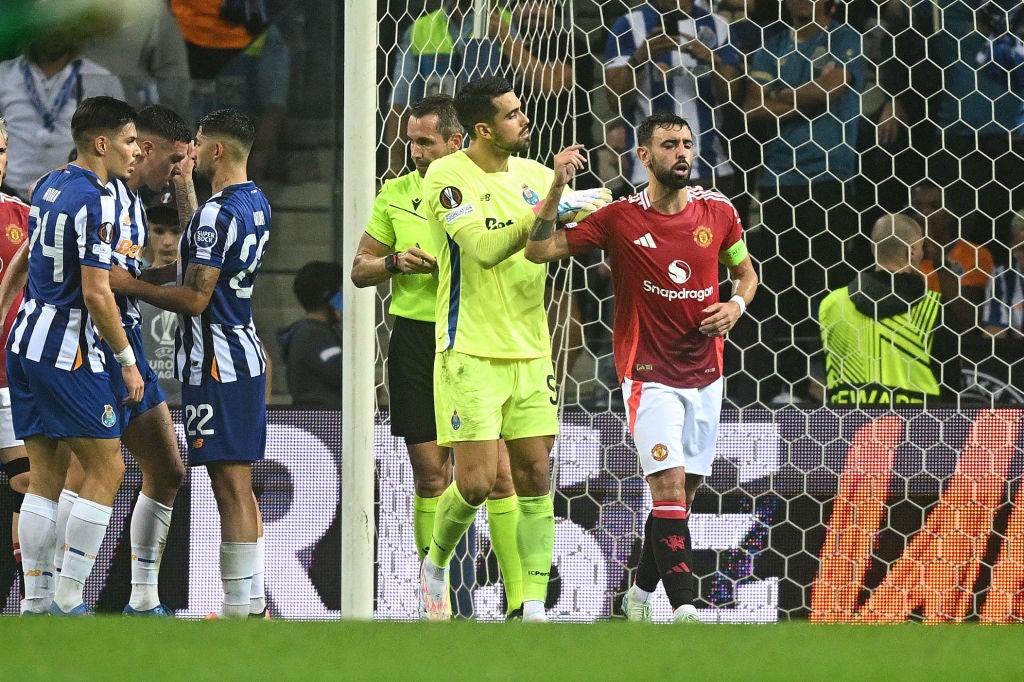This website uses cookies so that we can provide you with the best user experience possible. Cookie information is stored in your browser and performs functions such as recognising you when you return to our website and helping our team to understand which sections of the website you find most interesting and useful.
Your support helps us to tell the story
Our mission is to deliver unbiased, fact-based reporting that holds power to account and exposes the truth.
Whether $5 or $50, every contribution counts.
Support us to deliver journalism without an agenda.

Louise Thomas
Editor
When one prominent football figure caught a glimpse of the Manchester United dressing room recently, they immediately recognised a scene they had seen from rival clubs. That was a squad that “doesn’t know what next” and feels like it’s “going nowhere”. It isn’t intentional, of course, but is a feeling that starts to grip a group when there’s no sense of clarity.
“It’s like purgatory,” was the phrase. That description is all the more apt, given how the 3-3 draw at Porto represented another back and forth, amid this widespread wonder over what the club will do with Erik ten Hag.
Only adding to the problems is that this situation is all too familiar to some of the players. Marcus Rashford has gone through this with four different managers. He’s experienced the same sorry cycle, the way that the club tries to persevere despite mounting evidence pointing to one eventuality. The otherwise admirable support of United fans usually buys managers more time, so there is less pressure for the club hierarchy to act. That is until it reaches a point where the job – and usually the season – is unsalvageable.
The unavoidable reality has been that, once a manager is in this situation, it is rare that they get out. That’s all the worse when the open talk around the club is that he’s “certainly safe for the next two games”. We’ve now had one, at Porto, and it didn’t offer much encouragement.
So here we are again, where Villa Park represents another juncture.
It’s ironically a stadium where United have a supreme Premier League record, losing once there in 29 years. Ten Hag actually oversaw that single defeat, a 3-1 in November 2022, that represented the first loss at Villa since the infamous “you don’t win anything with kids” reverse on the opening day of the 1995-96 season. Despite that impressive record at one of English football’s mythic stadiums, Villa Park could now end up another Vicarage Road, Anfield or Goodison Park in the club’s modern history, in abruptly ending a manager’s tenure.
There are far bigger discussions that Ineos should have about why this keeps playing out, about why the same cycles persist through different players, squads, managers and seasons. That “toxic” core, as so many in football put it, is precisely what United’s new football leadership must identify and eradicate.

That, however, is also why Ineos’s decision in the summer raised such eyebrows.
Because, for all the justifiable discussions that must be had about United as a club in 2024, that can’t absolve Ten Hag. There are too many problems that come from the manager here.
After more than two years, United are so easy to play against. There’s no consistency of ideology or shape. The brief clarity that came in the spring of 2023 has evaporated, with confusion persisting for far longer. It is remarkable that United served up a sackable display in October 2023 with that 4-3 defeat in Copenhagen, only to produce something very similar in Porto a year on.
That is despite changes in personnel and context, just like the club as a whole. Ten Hag can’t point to injuries any more. He can’t even point to not having the players he wants. Matthijs de Ligt and the vaunted Lisandro Martinez have recently looked as easy to get at as Harry Maguire and Victor Lindelof were. So-called “problem” players have gone but the actual on-pitch problems persist.
Sunday’s opposition are really the great riposte to any excuses Ten Hag or the United leadership could make. Unai Emery has been at Aston Villa for a shorter period and doesn’t just have the team performing better relative to resources but has the club at the kind of Champions League level that United crave. They’re beating Bayern Munich with astute tactics while United are losing to a series of inferior sides through baffling performances.

It can’t even be said that Emery took on a better situation. Villa had much less money. They arguably had even more problems, given that this was a club whose financial future was under question only a few seasons ago. Villa had become one of English football’s great basket cases. No longer.
United instead remain the greatest basket case of all, with this level of farce continuing long after anyone thought possible. It is almost an achievement of sorts, to go with how United’s matches have become unmissable for all the wrong reasons. Hated, adored, impossible to ignore because it’s so enthralling. It has all meant Emery is now one of countless managers performing better than Ten Hag, despite having less time and fewer resources.
The one point that should be acknowledged in any comparison with Villa or other clubs is that United endure a level of scrutiny beyond anyone except Real Madrid or Barcelona. Some current players are said to have been struck by it. Those without the necessary experience can whither.
Except, the logical follow-on from that thinking is whether this is what is happening to Ten Hag; whether a coach who was very good at a club like Ajax is just being exposed at a higher level. How many images of him scowling on the line can we watch? Again, Ineos’s decision in the summer didn’t help. It only served to erode his authority, especially with how he was effectively interviewed for his own position.
Some with knowledge of the situation insist Thomas Tuchel was close to the job then, but there were differences over financial terms. Murmurs about the German are resurfacing, at the same time as talk of Gareth Southgate has slightly cooled.
All of this points to how a lot of the squad expected Ten Hag to go in the summer. Some expect it now.

A rising number of players are said to be increasingly surprised by decisions. If true, it has manifested in tactical instructions that either aren’t being heeded or applied, with the team lacking intensity. How to explain the way opposition players just run through them, not to mention the poor marking and open space? The first goal Porto scored on Thursday was a showcase of so many players being short of the level. They can be individually criticised, sure, but the sheer number of errors normally points to something more collective.
This is where that cycle becomes even more familiar, and why people talk of “purgatory”. It’s like the team just can’t arrest chronic decline until there is a more direct change.
And yet, there has been another cycle at United that has prolonged all of this; one of good results suddenly coming out of nowhere, or at least, coming out of the individual quality of the players.
Along those lines, it should be stressed here that Ineos insists it is taking the longer view on all this; that no decision will be rushed.
Except, there’s a reasonable perception that it actually took its decision in the summer but just couldn’t find a suitable alternative. If so, the question becomes how sustainable this is, or whether it eventually becomes untenable. There’s only so long you can keep banking on the positive momentum that comes from individual results. It rarely causes fundamental change.
Even those boom-bust cycles under Louis van Gaal, Jose Mourinho and Ole Gunnar Solskjaer eventually devolved into bad runs. The boulder comes to a stop.
Is that happening for Ten Hag? He evidently needs more than salvation from this purgatory. He needs clear skies. Otherwise, the cycle keeps going around again.



 Africana55 Radio
Africana55 Radio 
